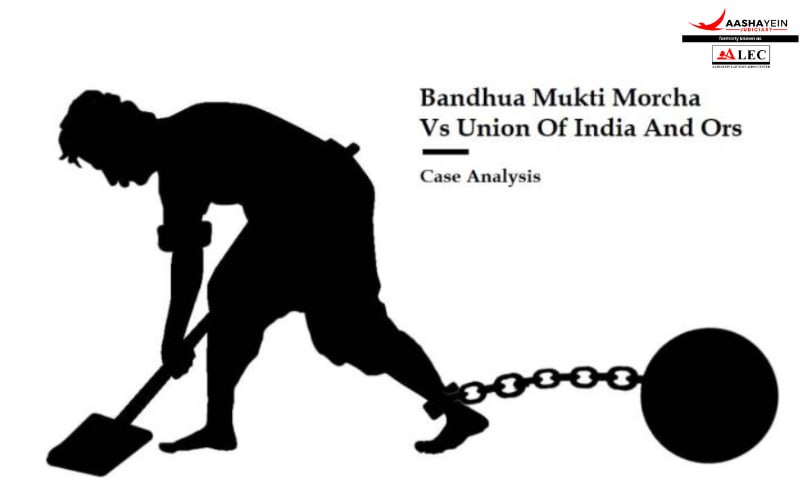Facts:
The petitioner, an organization dedicated to freeing bonded laborers, surveyed stone quarries in the Faridabad District near Delhi. The survey revealed that many workers, originally from Maharashtra, Madhya Pradesh, Uttar Pradesh, and Rajasthan, were enduring extremely harsh working conditions, with several of them being bonded laborers.
Deeply concerned, the petitioner wrote a letter to the Supreme Court, bringing these issues to its attention, and filed a Public Interest Litigation (PIL). The PIL claimed that hundreds of workers were trapped in bonded labor and living in degrading conditions.
The Supreme Court responded by appointing a commissioner to investigate the allegations. Within a few days, the commissioner carried out the investigation and confirmed the claims in the petitioner’s letter. A report was submitted to the Court, validating the accusations of bonded labor and poor living conditions.
Issues:
The key issue for the Bench to decide was-
- Whether the writ petition filed under Article 32 of the Constitution to address the grievances of bonded laborers is valid and maintainable.
- Whether the workers’ fundamental rights under Articles 21 and 23, along with their entitlements under labor and social welfare laws, have been violated due to the alleged inhuman conditions and bonded labor practices.
You can also read the Blog by visiting [Blog]
For more information, visit [Aashayein Enquiry Section]
Held:
The Supreme Court, in its judgment, responded to a report highlighting human and constitutional rights violations affecting labourers. The Court reinforced that Article 21 of the Constitution ensures the right to live with dignity, free from exploitation. It also emphasized that the State has a duty to protect fundamental rights, especially for vulnerable populations, by enforcing social welfare and labor laws.
The judgment in the Bandhua Mukti Morcha case underlined the importance of safeguarding children's rights, including education and well-being, as essential for India's democratic progress. Acknowledging that child labor can't be eradicated immediately due to poverty, the Court recommended practical measures to protect children's rights, focusing on those from disadvantaged communities.
The Court supported its decision by referencing several constitutional provisions:
- Article 21 guarantees the right to life and personal liberty.
- Article 24 prohibits employing children under 14 in hazardous industries.
- Article 39(e) discourages work unsuited to an individual’s age or strength.
- Article 39(f) requires the State to protect children from exploitation and promote healthy development.
- Article 45 mandates free and compulsory education for children under 14.
The Court also acknowledged India's obligations under international agreements, such as the Universal Declaration of Human Rights and the Convention on the Rights of the Child, which call for free education and protection against economic exploitation.
To prevent further rights abuses, the Court issued 21 directives for the Central and State Governments, appointing a Commissioner from the Ministry of Labour to monitor their implementation.
Analysis:
The Supreme Court’s judgment emphasized protecting bonded labourers’ rights, setting a precedent against exploitation due to poverty. It reinforced that all citizens have an equal right to dignity, making it the State’s duty to prevent such violations and ensure justice for vulnerable groups.

